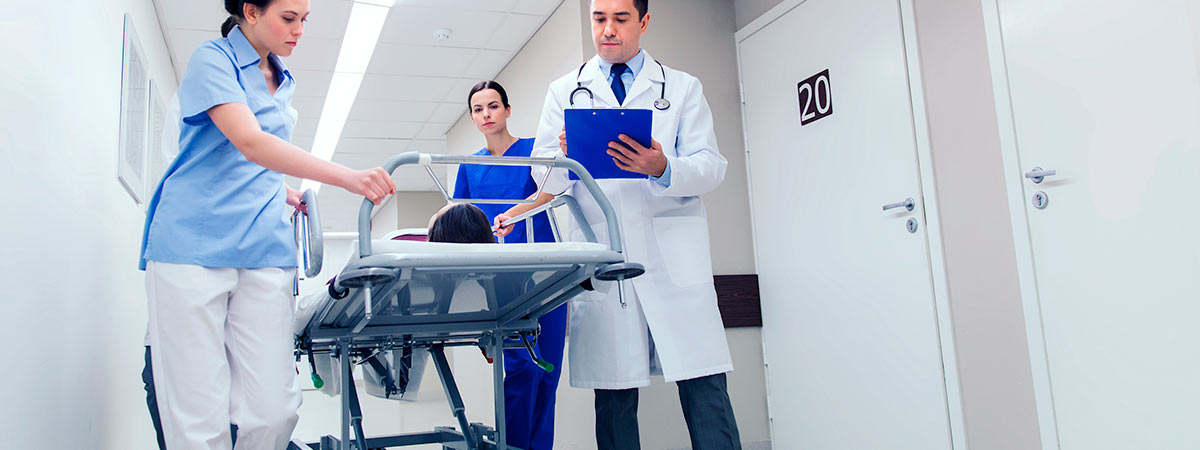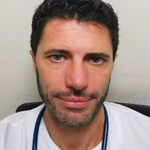Refresher Course on Frequent Medical Emergencies

Staying up-to-date on frequent medical emergencies
With the Covid 19 pandemic, the traditional medical consultation has been affected; a need has been generated to change the communication channels with the health system, significantly affecting Urgent Pathology Processes. We have experienced a situation in which traditional diagnostic circuits have been modified, generating changes in the most frequent type of pathology, with a decrease in trauma pathology, for example, and increasing chronic medical diseases and their acute decompensations.
Therefore, it is necessary to stay up-to-date on the most frequent processes of urgent health care. With this short course, you will be able to visualize in a global and pragmatic way the approach to urgent pathology.
It is a course from the perspective of the medical professional in consultation, based on their daily clinical experience and what they have experienced during the pandemic, so it is an eminently practical perspective of the most frequent urgent pathologies.
Curriculum
Refresher Course on Frequent Medical Emergencies
- 1. Creating Acute Respiratory Units. Why is it so important to separate these patients? What is the clinical basis?
Acute respiratory disease at the time of the Covid-19 pandemic..- Dyspnea. Severe respiratory insufficiency
- Asthma and COPD
- Pulmonary embolism
- 2. I see an alteration in the EKG. What do I do?
Decompensation Heart Failure and Cardiac Arrhythmias.- Physiopathogenesis of heart failure
- Tachyarrhythmias
- Bradyarrhythmias
- 3. Poor general condition, myalgia, shivering. What is actually important?
Febrile syndrome with general symptoms.- Fever without a focus
- Signs of sepsis and septic shock
- Upper respiratory infections
- Urinary infection
- 4. Psychiatric pathology and attempted autolysis. Is what the patient tells me serious? When should I refer them to a hospital?
- Anxiety and panic crisis
- Somatic cases in the emergency room
- Depression and attempted autolysis
- 5. Tele-emergencies: Telephone assistance and health telematics. The new challenge that has changed the way we work in the practice.
- Patient-doctor communication
- Refresher on medical information media
- Management of emergency telephone inquiries
- 6. We have a patient with generalized seizures. How should I act?
Epilepsy and Seizures.- Types of seizures and epileptic state
- Attitude in the face of a seizure
- Differential diagnosis
Professors
 Antonio Matías de la Guardia
Teaching direction
Antonio Matías de la Guardia
Teaching direction
More Academic Info
Aimed at:
Competences
At the end of the course, the medical professional student will acquire the minimum knowledge and skills to:
- 1. Know how to identify respiratory pathology with the various decompensation processes in asthmatic or chronic bronchitis patients, and know how to differentiate them from specific pathologies at the time of the Covid-19 pandemic.
- 2. Distinguish the symptoms and approach to cardiac pathology, as well as differentiate its severity and the criteria for hospital referral.
- 3. Identify the most frequent causes of fever with no apparent source, as well as detect alarm signs and symptoms to refer the patient to the health system.
- 4. Have basic knowledge to act and/or refer urgent psychiatric pathology from health centers and hospitals.
- 5. Manage doctor-patient communication and with family members through the different telematic means, as well as the sensitive treatment of medical information therein.
- 6. Discern between the different types of neurological and non-neurological seizures, as well as distinguish the semiology of each and their therapeutic approach.
Objectives
- 1. The main objective of the course is for the health professional to know the main actions in frequent medical pathology, as well as know important aspects of staying up-to-date practicing medicine.
- 2. The student will know how to identify the processes of urgent medical illness, their causes and know the dimension of the problem in different pathologies.
Teaching methodology
The course is taught online through the virtual classroom of Nebrija Global Campus. The lectures scheduled in a calendar previously communicated to the students are broadcast live with the professor's initial teaching presentation and later an interaction with the students to answer questions and pose clinical cases.
- Live virtual lectures with slides.
- Teaching material and bibliography provided by the teaching staff.
- Exercises for students with follow-up. Solving of a clinical case.
- Personalized tutoring sessions.
